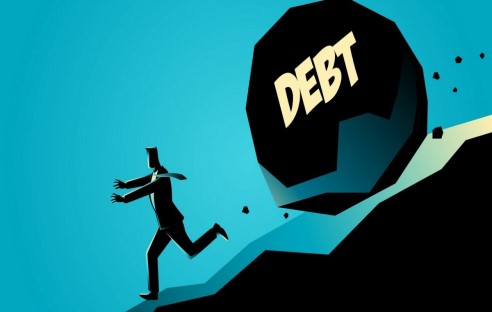Being in debt can be stressful and scary. Often it feels as though you are stuck in a cycle of mounting debt and the only way to cope is to ignore the problem. If you have ended up with personal debt, we have got some tips to help you manage this.
5 Ways To Handle Your Debt
1) Do Not Hide From Your Debt
A very common response to mounting debt is to bury your head in the sand. It is human nature that when things are stressful and scary to us, we just ignore them. However, the first step to handling your finances is to know how much debt you are in and how quickly it is being accrued.
Take time to assess your situation fully and work out how serious your debt is. Two big questions to ask yourself are:
- Am I struggling to pay all basic outgoings, eg. mortgage, rent, energy bills and credit card minimums?
- Are my debts (excluding your mortgage) bigger than a year’s after-tax income?
If you are simply unable to pay your debts (even at the minimum level), your situation is serious and you will need to take serious action. The best thing to do is access free one-to-one debt counselling.
If you are struggling with debt, it is a very good sign that you are reading this article. The sooner you start to take control the better you will feel and the closer to being debt free you will be. Having professional advice and help with your debts will be hugely beneficial.
If you are able to pay off your minimum debt repayment and pay all basic outgoings, we have prepared some simple steps.
2) Seek inspiration
Seeking support from others in the same situation as you can be hugely motivating. Find local groups who support those struggling with debt, or look online to find a community of people striving to be debt free. Seeing others do what you hope to achieve will make it all the more attainable.
3) Sort your spending
Set a budget and get your spending under control. Making sure that you are only spending what you need to means that you can pay back your debts more quickly, saving you money in the long run.
You should also make sure that you are claiming the maximum benefits you are entitled to. There are some government-run schemes to support people struggling to make mortgage payments, so make sure that you are getting all the support you can.
4) Cut down debt costs
Assess your debts and see if there are any ways in which you can save money. It might be that you are repaying debts on a very expensive credit card.
Instead of this you could take out a cheap personal loan and save on the interest you are repaying or borrow money from family and friends. Again, look into grants and support for people in your situation. It is also important that you look at when your debts are meant to be repaid and insure all payments made on time to avoid late fees.

5) Seek help
If you still feel overwhelmed by your debts and as though you will not be able to repay them, seek help from professionals such as financial advisors or credit counsellors. There are plenty of free advice services and professionals who can support you to get a handle on your debt.


